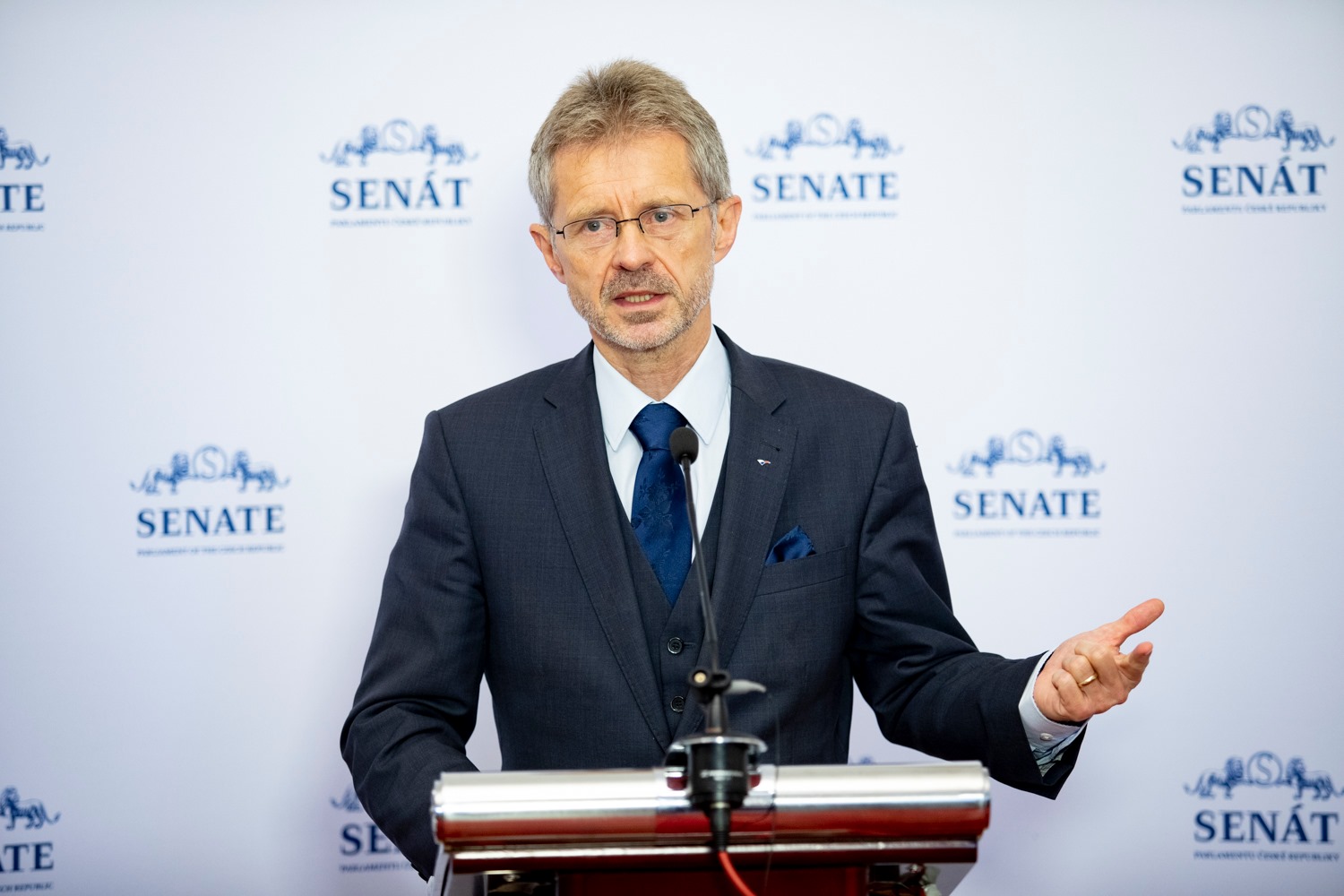On June 9, Czech Senate President Miloš Vystrčil summoned a press conference to announce a long-expected decision on an issue that had animated a domestic political debate for months: his planned visit to Taiwan. Vystrčil surprised few when he confirmed that he will visit the self-ruling island at the end of August. This was presented as a heroic decision in the face of Chinese pressure by some and a blatant attempt to disrupt ties with China by others. How has Taiwan become such a hot topic in this small Central European country?
While ostensibly a foreign policy topic, the Taiwan issue in the Czech Republic has become a proxy battleground for opposing domestic camps. The China-friendly camp, represented by President Miloš Zeman and his political allies, sees the visit to Taiwan as an affront to the China-friendly policy they have advocated in the past several years, arguing that it will hurt the country economically.
For this reason, Zeman’s office has been doing its utmost to stop the visit, which was originally to be conducted by Vystrčil’s predecessor in the office of Senate president, Jaroslav Kubera. In this effort, Zeman’s office has even solicited the support of the local Chinese Embassy, asking for its statement on the impact of the visit on Czech-China ties. The statement, later delivered to Kubera via the president‘s office, directly named Czech companies whose business in China would be hurt should the Taiwan visit go on. Curiously, more pressure against the Taiwan visit seems to have come from domestic actors rather than China directly, although Beijing has also repeatedly let its displeasure known in no uncertain terms.
In the opposing camp, many have seen the visit to Taiwan as a matter of principle, especially after Kubera suddenly died from a heart attack. Vystrčil said that his decision will prove the Czech Republic is an independent and proud country that will not bow to China’s pressure. To him and many others among the liberal opposition, Taiwan is seen as a symbol that reflects the Czech Republic’s own historical experience and the democratic values its society is built on. One can even often see Taiwanese (and Tibetan) flags among the protesters against the current government of Prime Minister Andrej Babiš, although these are mainly over domestic issues. In the Czech liberal circles, Vystrčil’s decision even made him a prime candidate in the next presidential election.
In effect, the issue of Taiwan has become yet another case of the long-standing dispute between the pragmatist and pro-human rights strands in the Czech thinking on foreign policy, the latter continuing in the legacy of the former freedom fighter and later President Václav Havel. Nothing drives the point home better than the fact that Vystrčil’s announcement on proceeding with this Taiwan visit was followed by a reception where a cake in the shape of a Taiwanese flag was served, on top of which was a quote from Havel.
Indeed, the Taiwan issue in Czech foreign policy stretches back to the 1990s and Havel. The first Czech president famously called for giving Taiwan a seat in the United Nations in his speech to the UN General Assembly in 1995 and received Taiwan’s former President Lee Teng-hui as well as Prime Minister Lien Chan. Disagreement over Taiwan, Tibet, and human rights issues have made the Czech Republic’s ties with China very tense for a long time.
After 2013, Zeman and the new government at helm at the time tried to swing the pendulum of the China policy toward economic pragmatism, downplaying relations with Taiwan as a result. Yet the rosy picture of the newly harmonic relationship soon broke down as China’s promises of investments and trade turned hollow and Beijing tested the patience of Czech politicians with boorish diplomacy.
Thus the pendulum swung back, giving new strength to voices criticizing China. The new mayor of Prague, Zdeněk Hřib from the Pirates party, scrapped a sister city agreement with Beijing over the inclusion of the “one China” principle, replacing it with a treaty with Taipei instead.
The debate was further reanimated by the discussion about the planned visit of the Senate president and the role of Taiwan and China in providing aid for fighting the COVID-19 epidemic. While Babiš and others welcomed purchased Chinese supplies at the airport, the governing parties did not support the notion of expressing gratitude to Taiwan for its donated supplies in the parliament.
Taiwan has transformed itself into a symbol negating China – the “anti-China” — in the domestic debate: a small, democratic and open island versus the aggressive authoritarian behemoth. Moreover, supporters of Taiwan, rightly, point out that Taiwan is actually a much more important investor in the Czech Republic and thus the economic logic of appeasing China on the issue does not hold water either.
It is safe to assume that Beijing will use all the available channels and tools to stop the Taiwan visit and so will its proxies in the country. Objectively, a visit on this level (Vystrčil is the second highest constitutional representative in the country) is a relatively rare move that bigger countries wary of China’s response have not even contemplated. Even the United States, the main security guarantor of Taiwan, has largely avoided sending high-level representatives to Taiwan. Therefore, we can expect Beijing’s reaction to be especially harsh.
Yet, one has to wonder what tools China actually has in its hands to punish the Czech Republic. The economic relationship remains weak and Beijing appears to be left only with the choice of withdrawing carrots that is has offered as inducements to the Czech Republic in the first place. A stop to Chinese tourist flows has been discussed previously, but the threat has lost potency in the context of the current pandemic. Moreover, whatever Beijing does, it will only turn the Czechs more antagonistic.
Yet approaching the issue without escalation seems to be out of the current toolbox of China’s diplomacy. China has been relying mostly on “sticks” recently, without regard to the impact on its long-term standing, as argued by the new publication of the MapInfluenCE project analyzing China’s overtures toward Central Europe.
Taiwan itself has greatly profited from the attention it is given in the Czech Republic. Vystrčil’s visit will be an important success for Taipei in breaking the increasingly tight diplomatic isolation that is has faced since Tsai Ing-wen came to power in 2016. It may also be the case that Vystrčil’s visit will inspire other countries to pursue a more active engagement with Taiwan. Nevertheless, in a long term, it would benefit Taiwan to be seen and appreciated not only as the “anti-China” but as a full-fledged partner of its own.
This article was originally published in The Diplomat.
Image source: Senát Parlamentu ČR/Facebook


